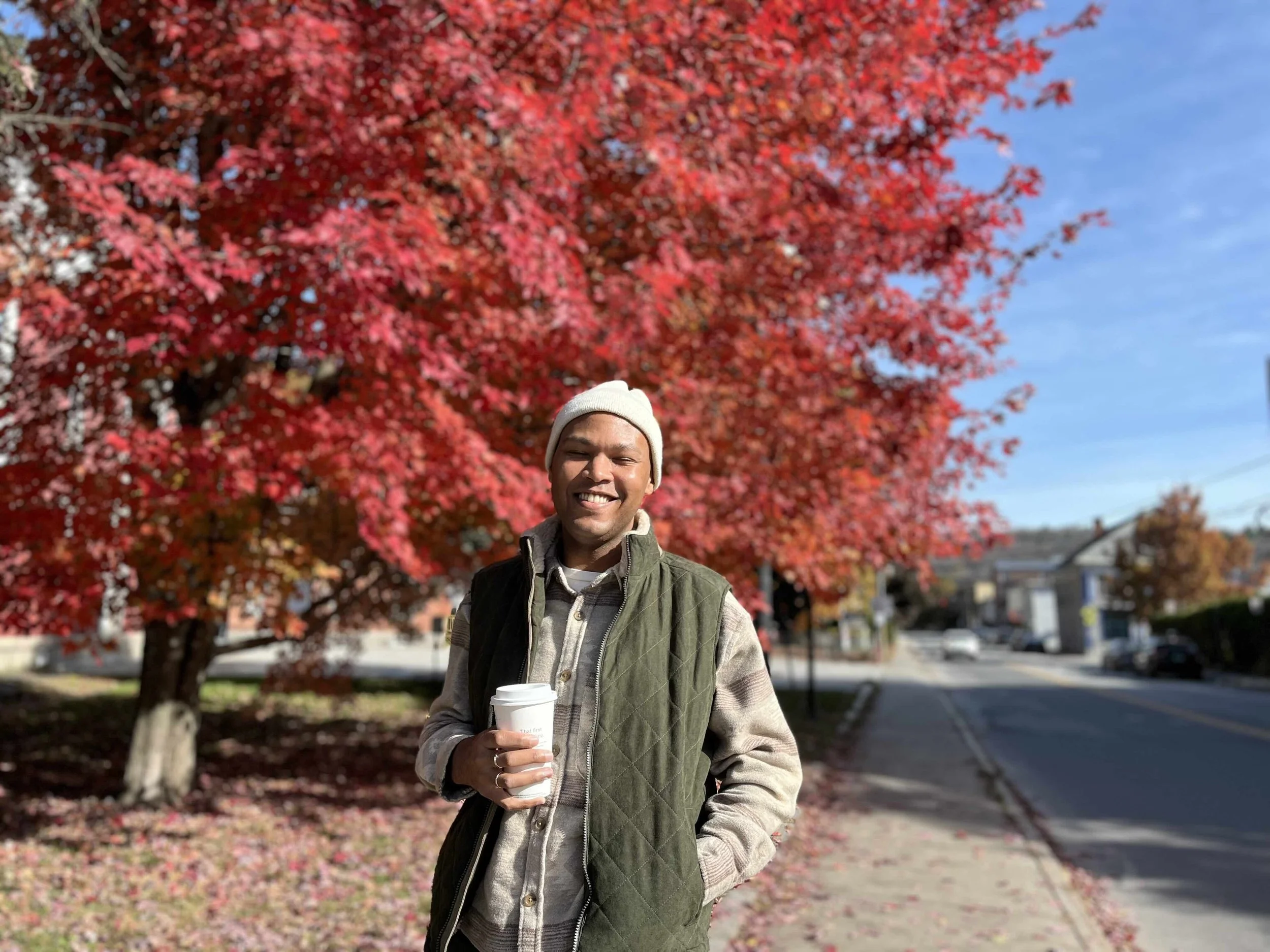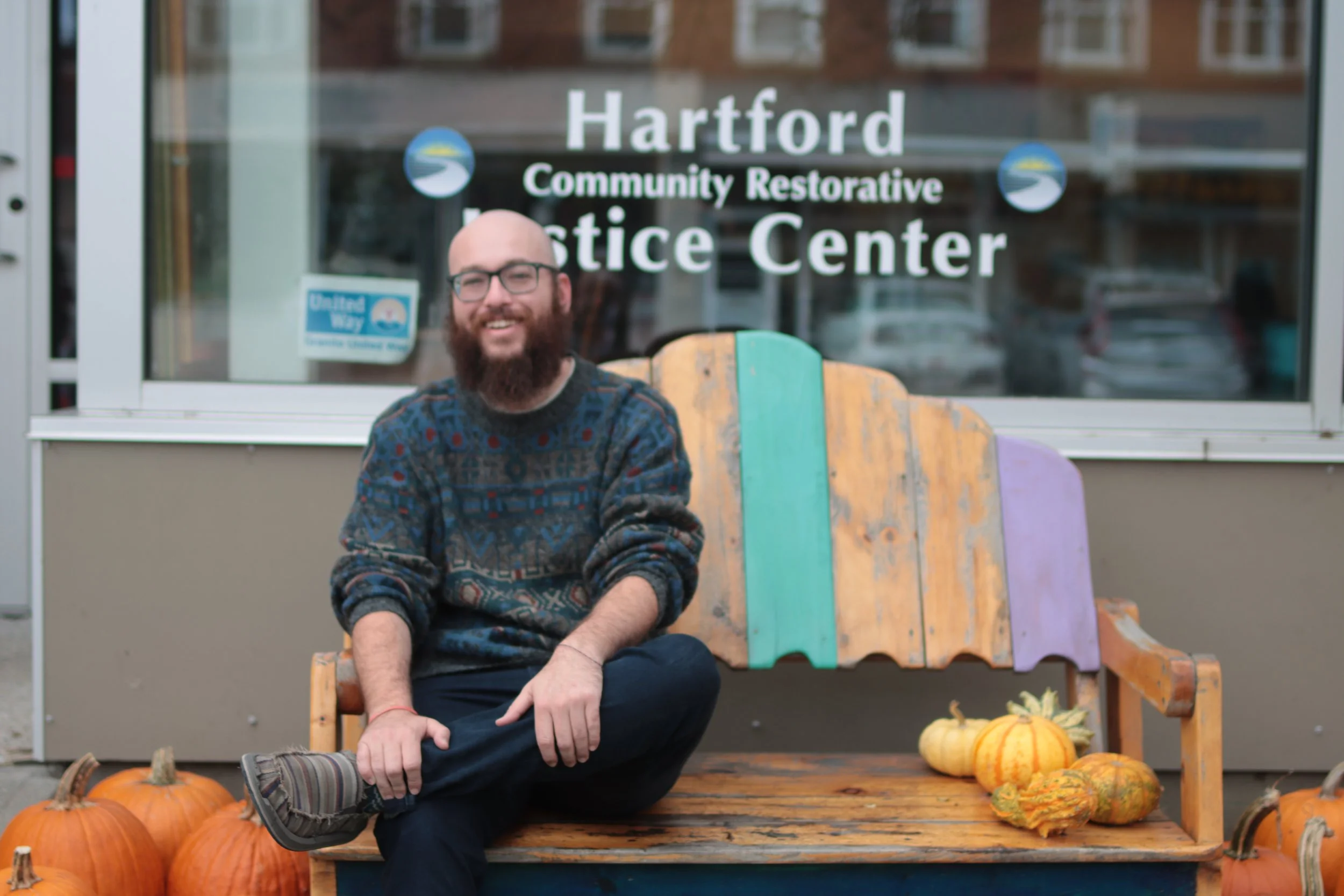Staff
-

Larry Blake Harvey, Executive Director
For Blake, restorative justice is a commitment to reshaping how communities respond to harm, centering the belief that accountability and care can exist together. He sees this work as more than resolving individual conflicts. It is about building systems that keep people connected, supported, and valued, even when mistakes are made. Blake works to create spaces where people can confront hard truths, repair relationships, and strengthen the social fabric that keeps communities whole. Guided by the understanding that change is possible for everyone, he leads with the conviction that justice is best served when it restores rather than isolates.
-
Julia B., Program Coordinator
For Julia, restorative justice centers on collectivity and the understanding that relationships and human connection form the foundation of strong, healthy, and adaptive communities. As a public health practitioner and social worker with experience in gender-based violence prevention, Disability Justice, Reproductive Justice, and intersectional feminist praxis, she is guided by the belief that, in the words of Mariame Kaba, “everything worthwhile is done with other people.” Julia views restorative justice as a pathway to accountability, repair, and transformation, one that challenges the culture of disposability that harms both people and the planet. She envisions a world where everyone is free and no one is left behind.
-
Hella Dijsselbloem Girón, Program Coordinator
For Hella, restorative justice is a practice of choosing connection over punishment and recognizing that people and communities need more than carceral responses to heal. She believes that real accountability happens when people are supported to face harm honestly, understand its impact, and take meaningful steps toward repair. With a background in restorative circle facilitation and community engagement, Hella is guided by the belief that everyone deserves to be heard, cared for, and given the opportunity to grow. She approaches human imperfection with empathy and patience, including her own, and sees restorative justice as a lifelong commitment to treating people with dignity and believing in their capacity for change.
-
Isaac Lorton, Storytelling & Media Associate
For Isaac, restorative justice is the continual, collective decision and dedication to the practice of accountability and healing as a community. Justice for a harm committed and restoration of a relationship both happen communally. Isaac believes we can share our stories and lived experiences to connect as people and strengthen our networks of support, while challenging the systemic practice of punishing people and writing them off. Resistance through existence.
Board of Directors
-
Kevin O’Hara
President
-
Brett Mayfield
Vice President and Secretary
-
Kitty O’Hara
Member
-
Alanna Ojibway
Member
-
Airon Shaw
Treasurer
-
Havah Walther
Member



